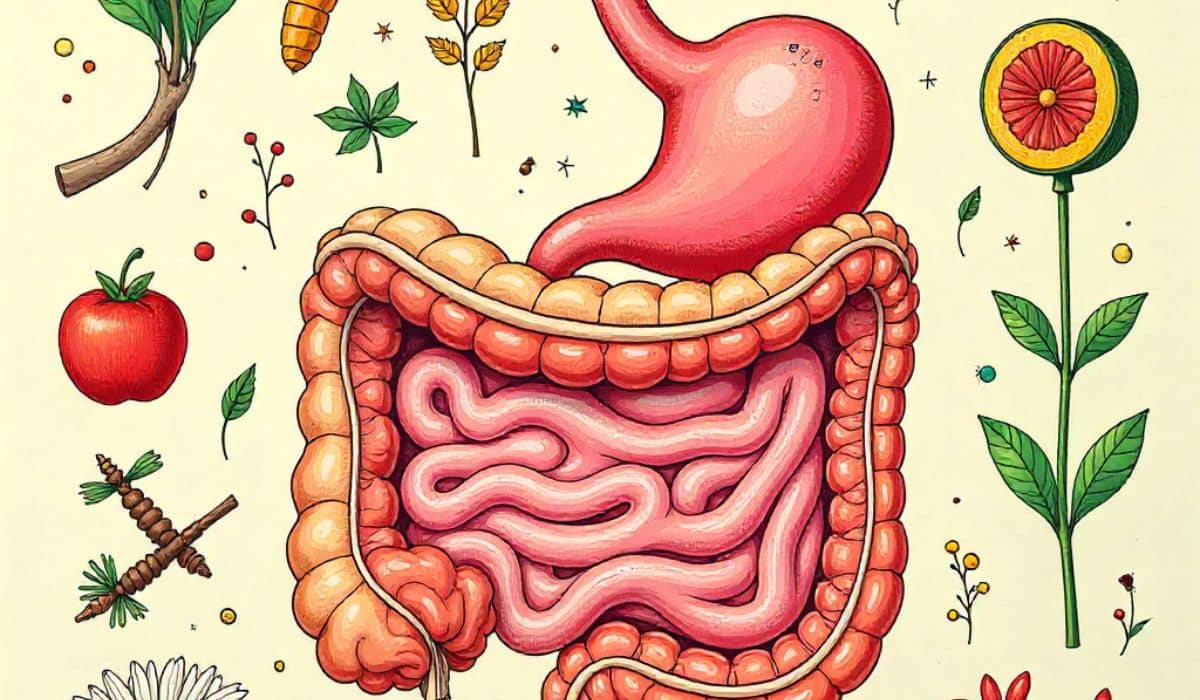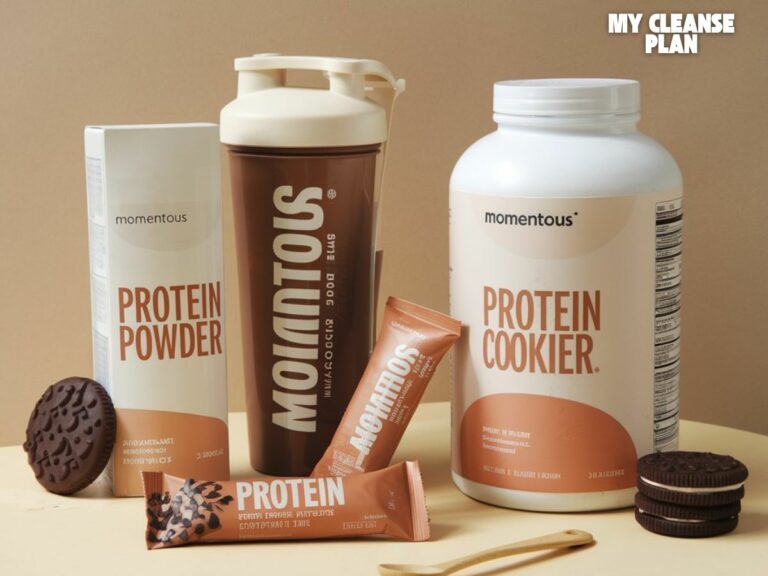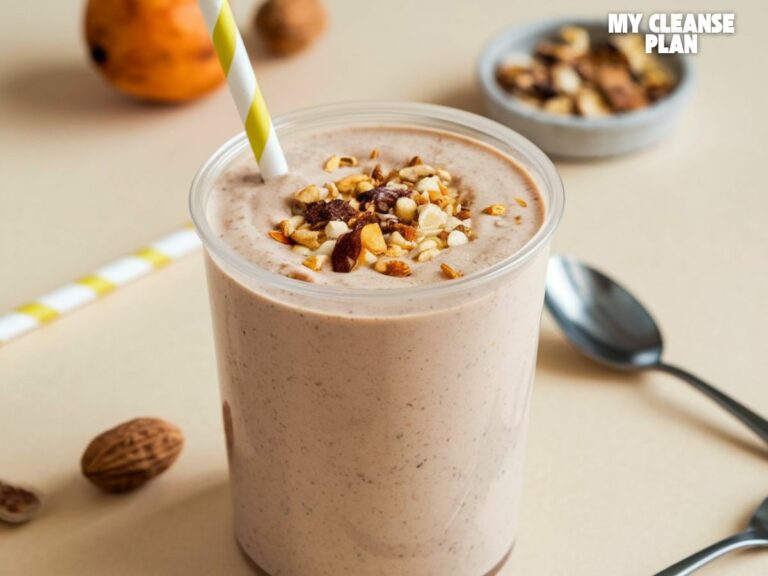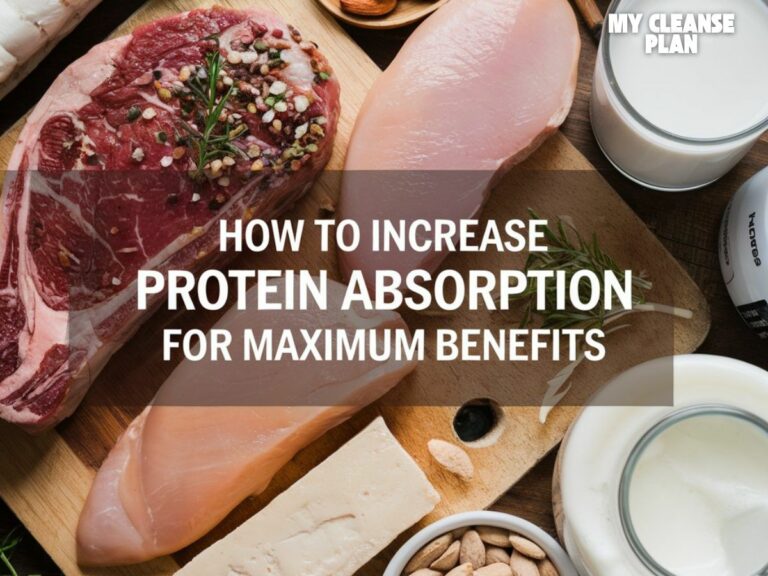Holiday Gut Health Guide: Essential Tips for Stress, Overeating, and Travel
Key Takeaways
- Prioritize Mindful Eating – Slow down, chew thoroughly, and savor your meals. This helps prevent overeating, reduces bloating, and supports smoother digestion during festive feasts.
- Manage Stress Proactively – Holiday stress can disrupt gut balance. Incorporate calming habits like deep breathing, gentle movement, or short walks to keep your gut-brain connection steady.
- Support Gut Balance During Travel – Time zone changes and unfamiliar foods can upset digestion. Pack probiotic supplements or snacks like yogurt, kefir, or fermented veggies to stay regular.
- Stay Hydrated (Especially After Rich Meals) – Alcohol and salty foods can dehydrate you, which slows digestion. Drink plenty of water or herbal teas like peppermint or ginger to aid gut comfort.
- Balance Indulgence with Fiber and Movement – Pair heavier holiday dishes with fiber-rich sides (veggies, salads, whole grains) and stay active—simple walks help stimulate digestion.
- Prioritize Rest and Routine – Sleep loss and irregular meal timing can throw off your gut rhythm. Aim for consistent rest and regular meals to maintain microbial balance and energy.
The holiday season brings a welcome whirlwind of celebration, connection, and cherished traditions. It’s a time for festive meals, travel to see loved ones, and a break from the daily grind.
Yet, this same period can create a perfect storm for our digestive system. The combination of rich foods, disrupted routines, travel, and the inevitable holiday stress can leave our gut feeling overwhelmed and out of balance.
Navigating this season doesn’t have to mean sacrificing your digestive well-being. By understanding the unique challenges the holidays present and adopting a proactive, gut-centric mindset, you can support your body, minimize discomfort, and fully embrace the joy of the season.
This guide provides essential, actionable strategies for managing stress, navigating indulgent meals, and handling travel to ensure your gut health remains a source of strength, not a source of distress.

Navigating the Holiday Season with a Happy Gut
The Unique Holiday Challenge: Stress, Indulgence, and Disrupted Routines
The holiday season is an exceptional period that tests our body’s resilience. Our daily schedules are often replaced with social gatherings, late nights, and travel.
Diets shift from routine meals to an abundance of rich, sugary, and processed foods, often accompanied by increased alcohol consumption.
Compounding this is a significant rise in emotional and psychological pressures, from financial concerns to complex family dynamics, culminating in what is commonly known as “Holiday Stress.”
This trio of dietary indulgence, routine disruption, and heightened stress creates a challenging environment for our digestive system.
Why Your Gut Health Matters More During the Holidays
During times of increased demand, a healthy gut is your greatest ally. Your digestive system is central to nutrient absorption, immune function, and even mood regulation.
When it’s under strain from holiday pressures, you may experience more than just temporary discomfort like bloating or indigestion.
A compromised gut can weaken your immune defenses, making you more susceptible to illness, and can negatively impact your energy levels and emotional state.
Prioritizing gut health during the holidays is a form of proactive self-care, ensuring you have the physical and mental resilience to enjoy the festivities.
A Holistic Approach to Digestive Well-being
Achieving digestive harmony during the holidays requires a holistic approach that extends beyond just what you eat. It involves managing your mental state, prioritizing rest, staying active, and making mindful choices without sacrificing enjoyment.
This guide addresses the interconnected nature of your well-being, focusing on the critical relationship between your brain and your gut.
By implementing strategies that support both, you can build a robust foundation for digestive health that withstands the season’s unique challenges.
The Gut-Brain Axis: Managing Holiday Stress for Digestive Harmony
The intricate communication network between your gut and brain, known as the gut-brain axis, is profoundly affected by the pressures of the holiday season. Understanding this connection is the first step toward managing its impact on your digestive health.
Understanding the Gut-Brain Connection: How Stress Affects Your Digestive System
Your gut and brain are in constant, bidirectional conversation. When you experience stress or anxiety, your brain sends signals that can directly disrupt digestive function.
It triggers the release of stress hormones like cortisol, which can alter gut motility (slowing or speeding digestion), increase intestinal permeability (“leaky gut”), and promote inflammation.
This physiological response can manifest as bloating, cramping, irregular bowel movements, and an exacerbation of underlying digestive issues.
Furthermore, stress can negatively alter the composition of your gut microbiome, the community of trillions of microbes essential for digestive health.
Proactive Stress Management Techniques for a Calm Gut
Managing stress is not just beneficial for your mind; it’s a non-negotiable for a calm gut. Integrating simple, proactive techniques into your holiday routine can significantly mitigate the physical impact of stress.
- Mindfulness and Deep Breathing: Even five minutes of focused, diaphragmatic breathing can activate the parasympathetic nervous system, shifting your body from a “fight-or-flight” state to “rest-and-digest.” This practice can calm gut spasms and improve overall digestive function.
- Setting Boundaries: The pressure to attend every event and please every family member can be a major source of anxiety. Politely declining invitations or setting limits on your time and energy is crucial for protecting your mental and digestive peace.
- Mindful Moments: Intentionally step away from the holiday chaos. Take a short walk, listen to calming music, or simply sit in a quiet room for a few minutes. These brief pauses help regulate your stress response and give your digestive system a break.
Navigating Holiday Feasts: Mindful Eating and Microbiome Support
Holiday tables are often laden with tempting dishes that can overwhelm the digestive system. The key to enjoying them without consequence lies in mindful indulgence and strategic nutritional support for your gut microbiome.
The Art of Mindful Indulgence: Eating Without Overdoing It
Mindful eating is about paying full attention to the experience of eating and drinking, both inside and outside your body. It allows you to savor your food while respecting your body’s signals of hunger and fullness.
- Slow Down: Chew each bite thoroughly. This not only aids the initial stages of digestion but also gives your brain time to register satiety, preventing overeating.
- Engage Your Senses: Before taking a bite, notice the aromas, colors, and textures of your food. This enhances the pleasure of eating, leading to greater satisfaction with smaller portions.
- Listen to Your Body: Pay attention to your hunger cues before you eat and your fullness cues as you eat. Aim to stop when you are comfortably satisfied, not uncomfortably full.
Fueling Your Microbiome: Dietary Strategies for Resilience
What you eat directly influences the health and diversity of your gut microbiome. During the holidays, it’s essential to consciously include foods that nourish your beneficial gut bacteria.
- Prioritize Fiber: Fiber is the preferred food for your good gut microbes. Start your day with a high-fiber breakfast, like oatmeal or a smoothie with greens, and try to include vegetables or a salad with your holiday meals. This helps maintain regularity and supports a healthy microbiome.
- Incorporate Probiotics: Probiotics are live beneficial bacteria that reinforce your gut ecosystem. Include probiotic-rich foods like Yogurt with live active cultures, kefir, or fermented vegetables like Sauerkraut and kimchi in your diet. These can help counterbalance the effects of sugar and processed foods.
- Limit Microbiome Disruptors: Be mindful of excessive sugar, artificial sweeteners, and alcohol, as they can negatively impact microbial balance and contribute to inflammation. Enjoy them in moderation.
Travel-Smart Gut Strategies: Keeping Your Digestive System on Track
Travel is a common component of the holiday season, but changes in time zones, diet, and environment can easily throw your digestive system off kilter. A few smart strategies can help maintain regularity and comfort while you’re away from home.
Preparing Your Gut for the Journey: Pre-Travel Considerations
Preparation is key to preventing travel-related digestive issues. In the days leading up to your trip, focus on supporting your gut health. Increase your intake of fiber-rich and probiotic-rich foods to build resilience.
Consider taking a quality, shelf-stable probiotic supplement starting a week before you leave and continuing throughout your trip to help maintain a balanced microbiome. Ensure you are well-hydrated before you even begin your journey.
On-the-Go Eating and Hydration During Travel
What you consume during transit matters. Airport and roadside food options are often highly processed and low in fiber. Pack your own gut-friendly snacks, such as nuts, seeds, fruit, or high-fiber protein bars.
Carry a reusable water bottle and sip consistently throughout your travels. Dehydration is a primary cause of travel-related constipation, and the dry air on planes can exacerbate it. Limiting caffeine and alcohol during travel will also help you stay hydrated.
Minimizing Travel-Related Digestive Disruptions
Once you arrive at your destination, simple actions can help your digestive system adapt. Try to stick to a relatively normal eating and sleeping schedule to support your body’s internal clock.
Incorporate gentle movement, like a walk after a long flight or car ride, to stimulate gut motility. Be cautious with new or unfamiliar foods, introducing them slowly to see how your system reacts.
Proactive Gut Care: Lifestyle Pillars for Overall Digestive Well-being
Beyond diet and stress management, foundational lifestyle habits provide consistent support for your gut, especially during demanding times like the holidays.
The Power of Movement: Gentle Exercise for Gut Motility
Regular physical activity is one of the most effective ways to support a healthy digestive system. Gentle exercise, such as a brisk walk, yoga, or stretching, stimulates intestinal contractions, which helps move food and waste through your system and prevents bloating and constipation.
Aim for a 20-30 minute walk each day, especially after large meals, to aid digestion and help manage stress levels.
Prioritizing Rest: Sleep’s Critical Role in Gut Repair
Sleep is not a luxury; it is a critical period for bodily repair, and your gut is no exception. During deep sleep, your body works to repair and regenerate tissues, including the gut lining.
Poor or insufficient sleep can disrupt this process, increase inflammation, and negatively alter your microbiome.
Aim for 7-9 hours of quality sleep per night. Establishing a consistent sleep schedule, even during the holidays, can profoundly support your digestive health and overall resilience.
Hydration: The Unsung Hero of Digestive Health
Water is essential for nearly every digestive process. It helps break down food, allows your body to absorb nutrients, and is crucial for softening stool to prevent constipation.
When you increase your fiber intake, it’s even more important to drink enough water, as fiber absorbs water to add bulk to stool. Aim to drink water consistently throughout the day, rather than chugging large amounts at once.
Essential Micronutrients for Gut Support (vitamins, Vitamin D)
Certain micronutrients play a vital role in maintaining gut integrity and function. Vitamin D, for instance, has been shown to support a healthy gut microbiome and regulate immune responses in the gut.
While sunlight exposure is a primary source, during winter months, incorporating Vitamin D-rich foods or considering supplementation (after consulting a healthcare provider) can be beneficial. Other vitamins, like Vitamin C and Zinc, are also important for maintaining a healthy gut lining.
After the Festivities: The Holiday Gut Reset
Once the celebrations have ended, it’s important to guide your digestive system back to a state of balance and routine.
Gentle Rebalancing and Recovery
A post-holiday reset isn’t about extreme diets or cleanses. It’s about gently reintroducing nourishing habits. Focus on simple, whole foods: steamed vegetables, lean proteins, healthy fats, and complex carbohydrates. Re-emphasize hydration and scale back on sugar, processed foods, and alcohol to give your digestive system a much-needed rest. Incorporating soothing elements like ginger tea or bone broth can help reduce any lingering inflammation.
Re-establishing Healthy Habits for Long-Term Gut Wellness
Use the post-holiday period as an opportunity to solidify healthy routines for the long term. Re-establish a consistent sleep schedule and a regular meal pattern.
Make movement a non-negotiable part of your daily life. The goal is to carry forward the mindful practices you adopted during the holidays, transforming them from temporary fixes into sustainable habits for year-round gut wellness.
When to Seek Professional Support
While most holiday-related digestive discomfort is temporary, it’s important to recognize when symptoms may indicate a more significant issue.
Recognizing Persistent Digestive Distress
If you experience persistent symptoms such as severe abdominal pain, chronic bloating, unexplained weight loss, changes in bowel habits that last more than a few weeks, or blood in your stool, it is crucial to consult a healthcare professional.
These can be signs of underlying digestive issues that require medical evaluation and support. Don’t dismiss ongoing discomfort as a normal part of life.
The Expanding Role of Gut-Brain Psychology
For those with chronic digestive conditions linked to stress and anxiety, the field of gut-brain psychology is emerging as a powerful therapeutic approach.
Therapies like cognitive-behavioral therapy (CBT) and gut-directed hypnotherapy can help manage the gut-brain axis, reduce symptom severity, and improve quality of life by addressing the psychological triggers of digestive distress.
Conclusion: Embrace a Gut-Friendly Holiday Season
Key Takeaways for Digestive Resilience
Navigating the holidays with a happy gut is entirely achievable with a proactive and mindful approach.
Remember these core principles: manage stress through mindfulness, eat indulgently but consciously, prioritize fiber and probiotics, stay hydrated and active, protect your sleep, and be gentle with yourself.
Empowering You to Enjoy the Holidays Without Gut Distress
This guide is designed to empower you with the knowledge and tools to make informed choices that support your digestive health.
By understanding the interplay between stress, diet, travel, and your gut, you can prevent discomfort before it starts, allowing you to focus on what truly matters: connecting with family and friends and creating lasting memories.
A Call to Action for Sustained Gut Wellness
Let this holiday season be the starting point for a deeper commitment to your gut health.
The strategies outlined here are not just for a few weeks of the year; they are foundational pillars for long-term vitality.
Listen to your body, nourish it well, and make gut health a priority today and every day.






